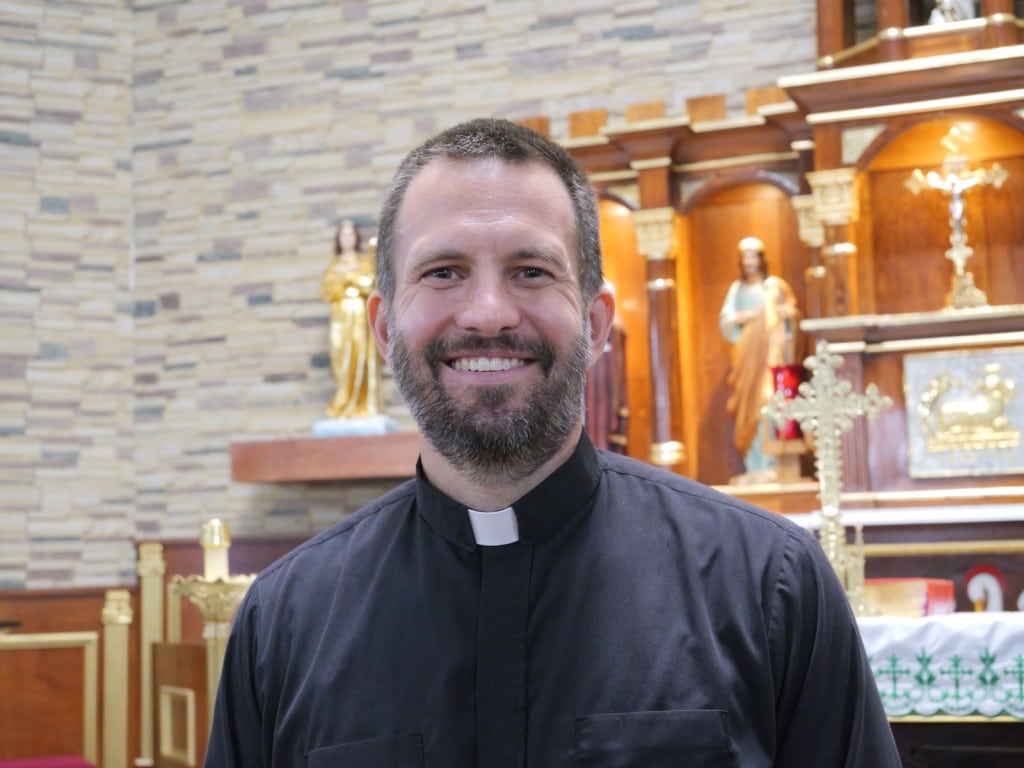BROWNSVILLE, Texas – Jesuit Priest Brian Strassburger, of San Felipe de Jesus Catholic Church in Brownsville, has spoken about his work helping migrants along the US-Mexico border.
Strassburger made the headlines recently when, in a column for the Jesuit Review, he said a “kangaroo court” system was in operation in the Rio Grande Valley. He penned the column with fellow priest William Critchley-Menor.
The article was titled: “What we saw during an ICE arrest and immigration court hearing: the breakdown of justice in America.” In the article the two priests reported on asylum seeker, Carlos, who was picked up by ICE immediately upon leaving a Harlingen court.
“To see before our eyes this breakdown of justice was appalling. The undercover nature of the ICE operation exposes the entire process for what it is: shameful,” the priests wrote.
Strassburger works for Del Camino Jesuit Border Ministries, a project that was developed in the Summer of 2021. The ministry visits camps and shelters in northern Tamaulipas and South Texas, celebrating mass. He said the ministry does provide some humanitarian aid but their main focus is to provide strength for migrants by allowing them to celebrate their faith.
The Trump administration barred access for any legal entry from asylum seekers into the US-Mexico border in January. As a result, Strassburger said nutritional drinks for children that are undernourished and have been living in shelters for months have had to be given regularly as basic humanitarian aid.
“We have increased the amount of time and visits and the places we are going in northern Mexico to accompany the vulnerable who are stuck in shelters with no clear path for how to get out or what to do,” Strassburger said. “It is people like single mothers with small children who might have family in the US and are fleeing violence, so they can not go home, and they very well could have family support in the country, but are stuck in northern Mexico. They can not work and support themselves, and they do not really know what to do so they are continuing to be in shelters, but our ministry, it is discerning and it is responding to the needs.”
Two weeks ago, Strassburger and members of the church attended an immigration court in Harlingen. Strassburger said he witnessed a Nicaraguan asylum seeker named Carlos get his case dismissed, and two ICE agents took him to an unmarked van after his case. Carlos was placed in expedited removal, a form of fast track deportation, and now resides in a Louisiana Immigration Detention Center.
“Migrants who come into immigration court are trying to follow the rules, do things the right way,” Strassburger said. “They are not trying to evade the law, they are not illegals in our country. They are documented migrants with open immigration court proceedings and the government is using this creative strategy of closing their cases to subject them to expedited removal.”
Strassburger said he is inspired to see the families celebrating mass at deportation shelters. He said he does not fault ICE members in the community for the mass deportations, because they are oftentimes people working jobs to support their families. Strassburger said he casts more judgement on the people that place working class members of the community in these positions.
“I am sympathetic to migrants who feel fear where they do not even want to leave their house, whether that is to go to the grocery store or even to come to church. That is an infringement on religious liberty. Migrants should have the freedom to practice their religion. If they are in a detention center, a chaplain should be able to enter and visit with people and celebrate mass,” Strassburger said.
“Migrants who are non-detained, should feel free and safe if they go to a church. That they are not going to be picked up, that they are not going to be asked about their immigration status, that they are there just to worship God, and all of us should have a right to access that regardless of our immigration status.”
The post An interview with the Jesuit priest who claimed ‘kangaroo courts’ are operating in the RGV appeared first on Rio Grande Guardian.
 (2).png)






 English (US)
English (US)